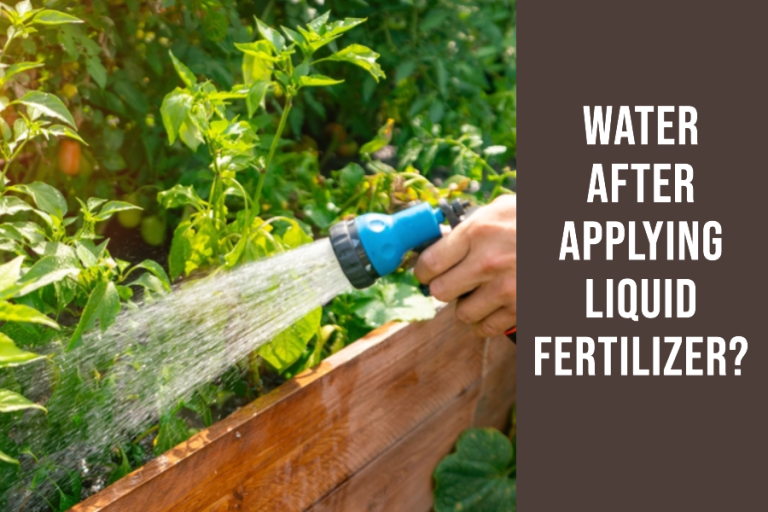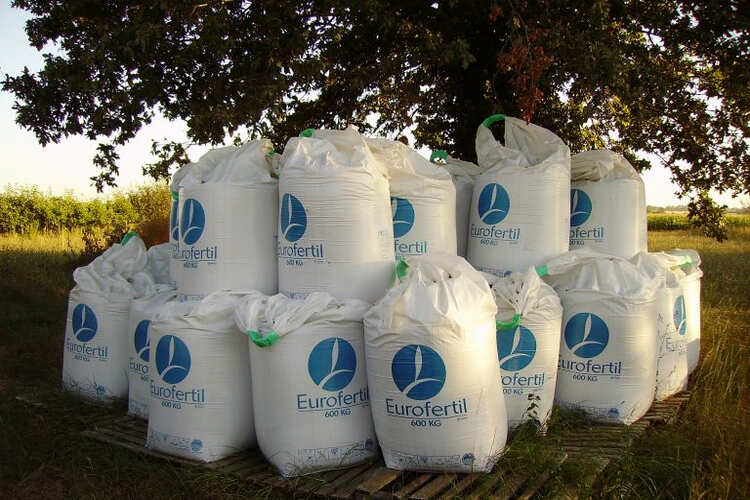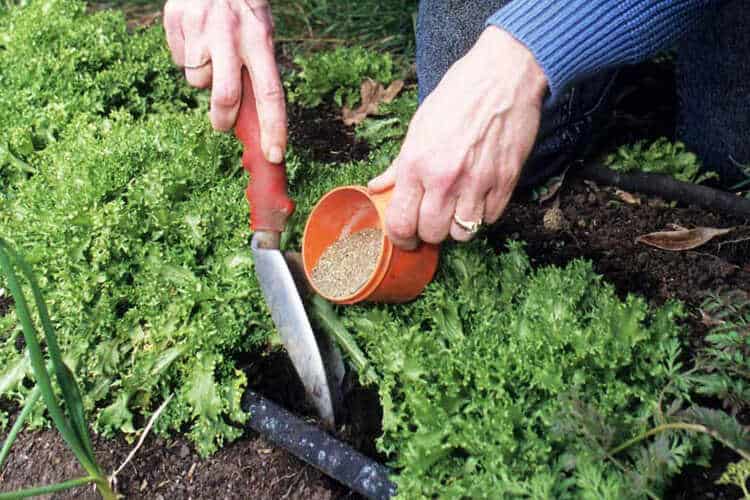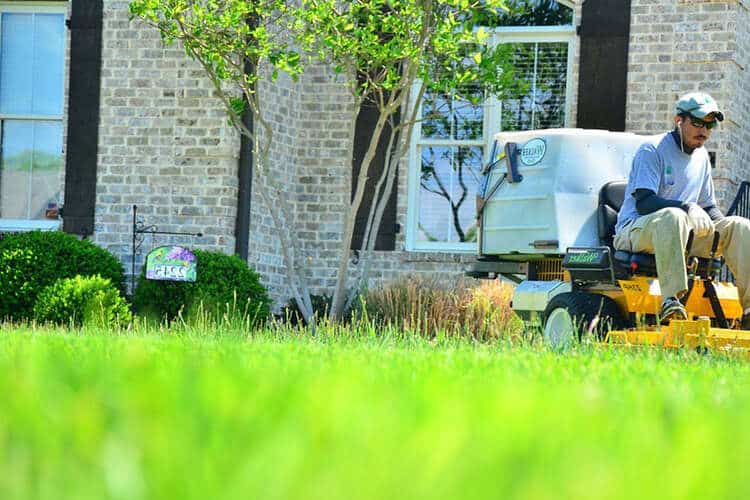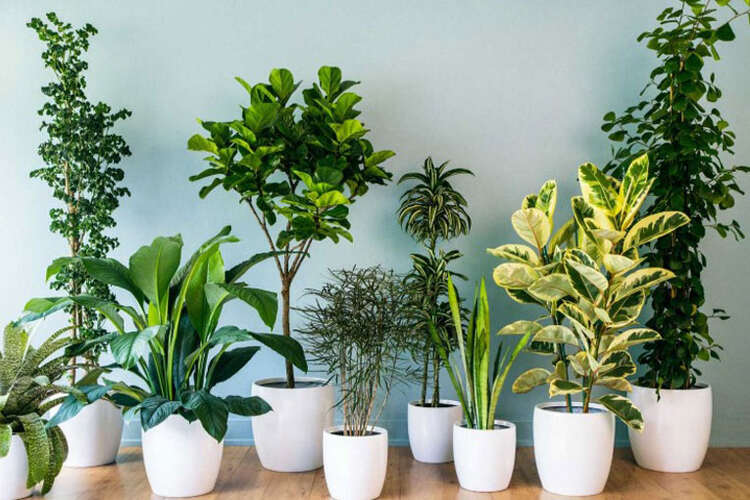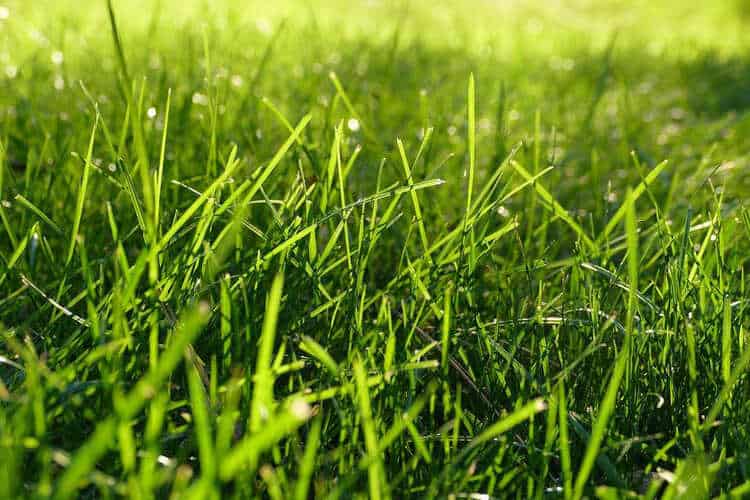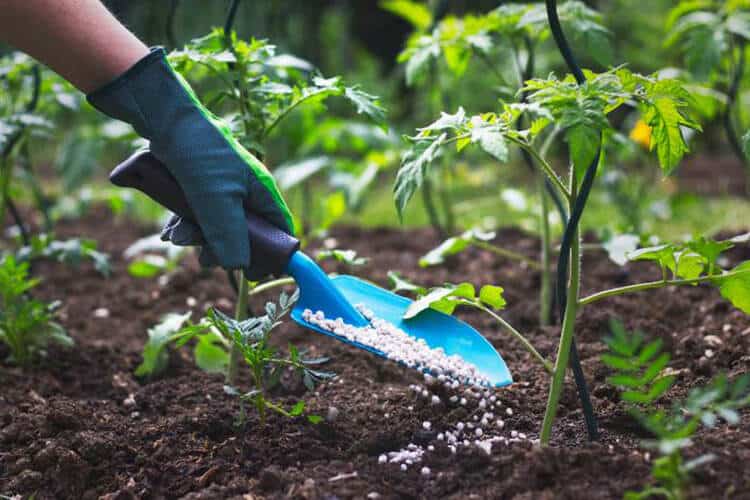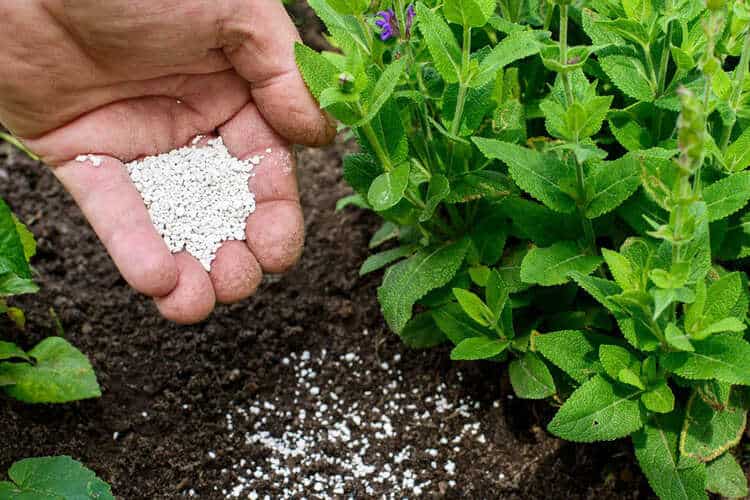Can You Mix Epsom Salt With Fertilizer? (Blend Formula)
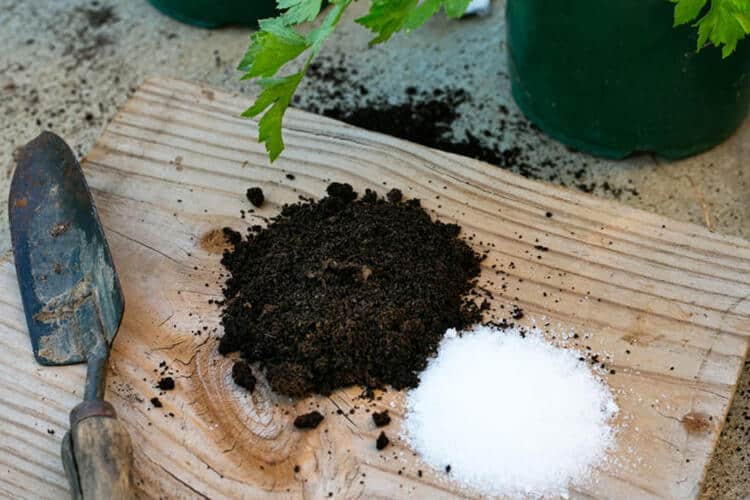
Epsom salts boost plant health by adding magnesium to the soil. They boost plant health by adding sulfur and magnesium to the soil. But can you mix Epsom salt with fertilizer? The answer is yes. Gardeners combine it with liquid fertilizer and use it as a foliar spray or soil drench.
The way they are combined and administered depends on your individual needs, and the outcomes may vary. Let’s dive right into the details!
Can You Mix Epsom Salt With Fertilizer?
Yes, Epsom salts can be mixed with liquid fertilizer or water, put around the bottoms of plants, or sprinkled directly on the leaves. This procedure results in larger blooms and more fruit.
It enhances flower blooming and leaf color. This substance promotes increased flower blooming. Plants absorb Epsom salts when mixed with liquid fertilizer, which is important for plant development. This element helps plants absorb essential minerals such as phosphorus and nitrogen more effectively. It also aids in the production of chlorophyll, a necessary component of photosynthesis. This substance will assist if the soil becomes magnesium deficient. Moreover, unlike most chemical fertilizers, it poses no risk of harm, so you can safely use it throughout your garden.
If you are interested in applying Epsom salts as fertilizer, please watch to understand the cautions and how much salt should be in your fertilizer:
How Do You Use Epsom Salt In Fertilizer?
Before using Epsom salt, have your soil tested to determine if it lacks magnesium. You should also notice that many species, such as beans and green vegetables, may thrive and produce in low-magnesium soils.
On the other hand, species like roses, peppers, and tomatoes require high levels of magnesium and are therefore irrigated with Epsom salt. When mixed with liquid fertilizer, plants absorb these Epsom salts, primarily when used as a foliar spray.
Once a month, apply a solution of 2 tsp (30 ml) of Epsom salt mixed with each gallon of water to most plants every other week. For more frequent watering, reduce the amount to 1 tsp (15 ml) every other week.
Spray in the spring as soon as the leaves show and again after the flowers have bloomed. Apply 1 teaspoon of Epsom salt crystals around each plant or sprinkle when transplanting after the first bloom and fruit setting for peppers and tomatoes.
Can You Use Too Much Epsom Salt On Plants?
Excessive levels of magnesium sulfate can cause damage to plants when using Epsom salt. Overuse of Epsom salt can cause magnesium to leach out of the soil. Additionally, an excess of soil magnesium can lead to the leaching of aluminum, which can harm aquatic systems and plants.
As a result, adding this substance might produce an unbalanced and hazardous habitat for thriving species. However, it is highly soluble. So, it does not stay in the ground for long.
What Do Epsom And Baking Soda Do For Plants?
Baking soda can be effective in reducing fungal spore growth in various situations. It works best on vegetables and fruits that are picked off the stem or vine. Applying regular treatments in the spring can help prevent diseases such as powdery mildew and other foliar problems. Mix 1 teaspoon baking soda, 1/2 teaspoon clear ammonia, and 1 teaspoon Epsom salt in a cup of water.
Mix thoroughly, then feed each plant a cup of the liquid. This solution will act as Epsom salt fertilizer to help wake up and reinvigorate slow-growing plants.
What Plants Do Not Like Epsom Salt?
Certain species, like beans and green vegetables, can thrive and produce in soils with low magnesium levels. Therefore, they do not tolerate this substance well.
However, observing a magnesium deficiency in your plants may indicate an issue with your soil. Some species have magnesium deficits due to an imbalance of nutrients in the soil. In such cases, applying Epsom salts may not be effective, as the phosphorus content in the soil needs to be reduced for plants to absorb magnesium.
Conclusion
In conclusion, using Epsom salt in your garden can provide various benefits for your plants. However, remember to check the soil condition before doing so to avoid magnesium deficiency. Hopefully, the information in this article has satisfied your question. If you want more useful information, don’t forget to visit Swipe Garden to read more helpful articles to support your gardening passion.


